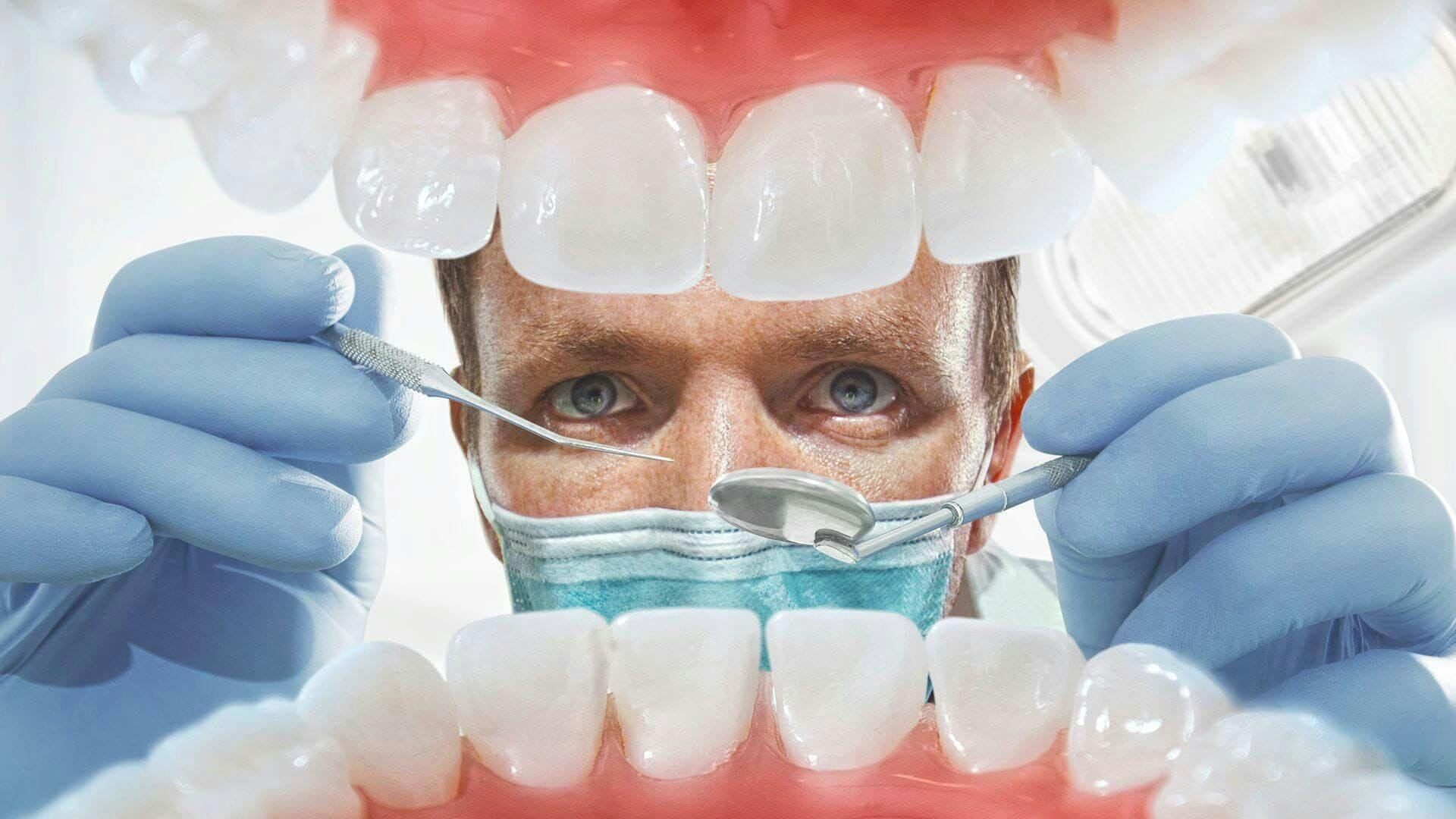Inexpensive Dental Treatment Options from Leading Dentists Eugene
Wiki Article
A Guide to Usual Oral Conditions That Need a Dental expert's Care
Understanding the series of oral problems that necessitate specialist care is paramount for preserving optimal oral wellness. Toothaches, for example, can be symptomatic of severe problems such as tooth cavities, split teeth, or abscesses, each requiring particular treatments like dental fillings or root canals. Gum tissue illness, from the onset of gingivitis to more severe periodontitis, underscores the value of routine dental examinations and cleansings. Moreover, impacted wisdom teeth and jaw disorders can present considerable discomfort and difficulties. Ensuring timely sees to the dental expert can alleviate these problems successfully, yet what specifically are the indicators and therapies involved?Toothaches
Toothaches are an usual dental condition that can vary from light discomfort to serious discomfort, usually showing an underlying issue that needs expert attention. This discomfort can come from a variety of resources, including dental tooth cavities, split or fractured teeth, and oral abscesses. Each of these conditions postures significant risks if left unattended, possibly leading to extra serious complications.Dental dental caries, additionally recognized as cavities, are created by the accumulation of plaque that deteriorates tooth enamel, leading to holes or pits in the influenced teeth. Abscesses are painful infections at the root of a tooth or in between a tooth and the periodontal, usually resulting from severe degeneration or without treatment cavities.
Effective therapy of toothaches includes addressing the source. This may include dental fillings for dental caries, crowns for split teeth, or root canals and anti-biotics for abscesses. Early treatment by a dental specialist can avoid additional wear and tear and reduce discomfort, ensuring optimal dental health.
Gum Condition
Gum tissue condition, a prevalent yet usually ignored oral problem, manifests through inflammation and infection of the gum tissues and sustaining cells. If left neglected, gingivitis can advance to periodontitis, a more serious kind identified by the devastation of the sustaining bone and connective tissue, inevitably leading to tooth loss.The main root cause of gum tissue illness is microbial plaque, a sticky, colorless film that constantly forms on teeth. Poor oral hygiene, smoking, genetic tendency, and certain clinical problems, such as diabetes mellitus, can exacerbate the risk of developing gum tissue condition. Regular oral examinations are crucial for early detection and monitoring of this problem.
Treatment for periodontal illness ranges from specialist oral cleansing and scaling to advanced treatments like root planing and gum surgery, depending upon the extent. Keeping great oral hygiene techniques, consisting of brushing twice daily, flossing, and utilizing an antiseptic mouth wash, can substantially decrease the risk of gum tissue illness and promote much healthier periodontals.
Cavities
Dental caries, additionally referred to as oral cavities, are an usual dental condition identified by the devastation of tooth enamel as a result of acid-producing germs in the mouth. These bacteria grow on sugars and starches from food and beverages, producing acids that slowly deteriorate the enamel, bring about cavity development.
Early-stage cavities may disappoint signs and symptoms, however as they proceed, they can trigger tooth pain, sensitivity to chilly or warm, visible holes or pits in the teeth, and discoloration. If left neglected, dental caries can permeate deeper layers of the tooth, possibly resulting in serious discomfort, infection, and also tooth loss.
Protecting against cavities includes a mix of good oral health methods and dietary routines. Normal cleaning with this post fluoride toothpaste, flossing, and routine dental examinations are important. Dental professionals might additionally advise added precautionary actions, such as fluoride treatments and dental sealants, to protect teeth from degeneration.
Therapy for tooth cavities depends on their seriousness. Minor dental caries can be resolved with oral fillings, which bring back the tooth's framework. More advanced cases might need crowns or perhaps origin canal therapy if the degeneration has gotten to the tooth's pulp. Prompt treatment by a dental professional is vital to prevent difficulties and keep total oral health.

Impacted Knowledge Teeth
Impacted wisdom teeth are a widespread dental problem that occurs when the 3rd molars, typically described as knowledge teeth, fail to totally arise or align properly within the mouth. This problem typically results from insufficient room in the jaw or an irregular development angle of the teeth. Influenced knowledge teeth can lead to a variety of complications, including infection, pain, and damage to surrounding teeth.When wisdom teeth end up being affected, they are typically partly appeared or stay completely under the gum line. This partial eruption can produce a pathway for germs to enter the periodontals, causing infections that materialize as swelling, discomfort, and even high temperature. Additionally, impacted knowledge teeth can put in pressure on neighboring teeth, potentially creating crowding or moving.
A detailed oral exam, usually involving X-rays, click for more info is necessary for identifying affected wisdom teeth. Routine dental exams are suggested to check the problem and keep dental wellness.
Jaw Problems
Jaw disorders, collectively referred to as temporomandibular joint (TMJ) conditions, encompass a series of conditions that impact the jaw joint and surrounding muscular tissues. These conditions can manifest through signs such as pain or tenderness in the jaw, trouble eating, a popping or clicking noise when opening up or closing the mouth, and even chronic headaches. TMJ problems can arise from different elements, including arthritis, jaw injury, or regular habits like teeth grinding or jaw clenching.Diagnosis of TMJ disorders typically includes a detailed analysis by a dental professional, consisting of a physical examination of the jaw, oral X-rays, and sometimes advanced imaging strategies like MRI or CT scans to analyze the joint's condition. Non-invasive strategies such as physical treatment, dental splints, and medicines aimed at reducing swelling and pain are frequently first-line therapies.
Early intervention by a dental expert is critical to avoid the progression of TMJ problems and to preserve overall dental wellness. Patients experiencing persistent jaw pain or disorder ought to seek timely examination and treatment.
Final Thought
Keeping oral health necessitates prompt expert like address typical oral conditions. Toothaches frequently indicate underlying problems such as tooth cavities, split teeth, or abscesses, calling for timely intervention. Gum tissue disease, from gingivitis to periodontitis, demands regular dental check-ups and cleansings to stop development. Influenced wisdom teeth and jaw disorders likewise require professional interest to alleviate discomfort and prevent additional issues. Normal dental check outs are important for detecting and dealing with these problems, guaranteeing general dental health and wellness and wellness.Dental cavities, likewise known as caries, are triggered by the buildup of plaque that deteriorates tooth enamel, leading to holes or pits in the influenced teeth. Abscesses are agonizing infections at the origin of a tooth or between a tooth and the gum, commonly resulting from serious decay or without treatment cavities.

In addition, impacted knowledge teeth can apply stress on surrounding teeth, potentially triggering crowding or shifting.
Report this wiki page